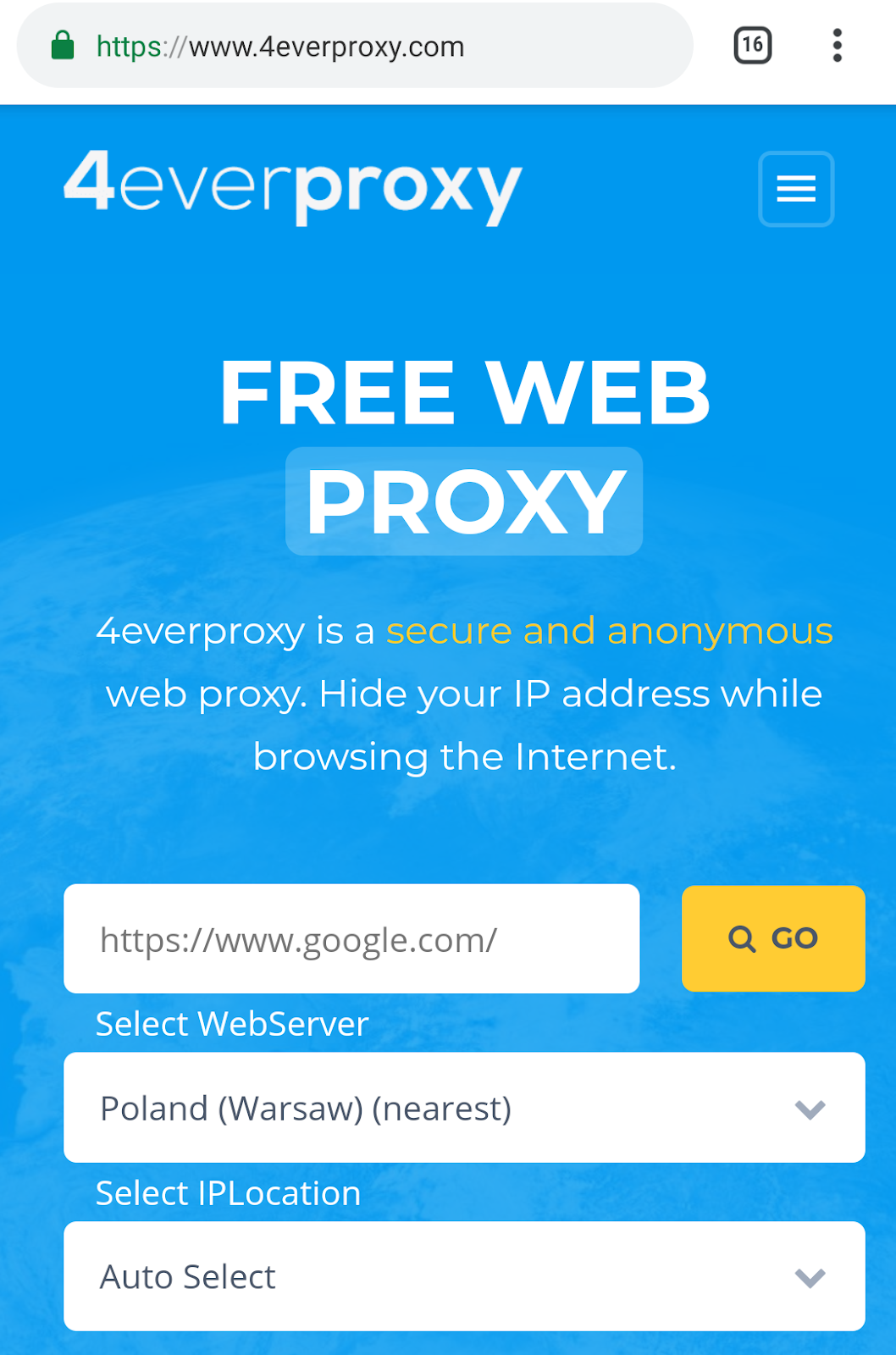So, you’ve probably heard about unblocked web proxy, right? It’s like the superhero of internet access when you’re stuck behind firewalls or geo-restrictions. Think of it as your secret weapon to bypass all those pesky restrictions and get what you need online. Whether you’re trying to stream your favorite shows or access blocked websites at work or school, an unblocked web proxy can be a lifesaver. But hold up, there’s more to it than just “click and go.” Let’s dive deep into the world of proxies and find out how they work, why they’re important, and what you should know before diving in.
Nowadays, with internet restrictions popping up everywhere, people are getting creative about how they access content. From schools blocking social media to companies limiting access to entertainment sites, the list goes on. That’s where unblocked web proxies come into play. They act as intermediaries between you and the internet, masking your IP address and letting you bypass those restrictions like a pro.
But hey, it’s not all sunshine and rainbows. While unblocked web proxies can open doors to a world of possibilities, there are some things you need to consider. Security, privacy, and even legal issues can pop up if you’re not careful. So, buckle up, because we’re about to break it all down for you in this ultimate guide to unblocked web proxies.
Read also:Mermaid Fast Food Mascot The Splashy Icon Behind Your Favorite Bites
What is an Unblocked Web Proxy?
An unblocked web proxy is basically a server that acts as a go-between for your device and the internet. When you use one, your requests are sent through the proxy server instead of directly to the website you’re trying to access. This means the website sees the proxy’s IP address instead of yours, allowing you to bypass restrictions and access blocked content.
Think of it like this: imagine you’re at a party where the host doesn’t want you in, but your friend is invited. You send your friend to grab you a drink, and they bring it back to you. In this case, your friend is the proxy server, and the drink is the content you want to access. Pretty cool, huh?
How Does It Work?
Here’s the technical breakdown: when you enter a URL into an unblocked web proxy, the proxy fetches the website’s content on your behalf. It then displays that content in its own interface, so you can interact with it as if you were visiting the site directly. The beauty of this setup is that it hides your real IP address, making it harder for anyone to track your online activities.
Why Use an Unblocked Web Proxy?
There are tons of reasons why someone might want to use an unblocked web proxy. Whether you’re dealing with geo-restrictions, workplace firewalls, or school policies, proxies offer a simple solution to access blocked content. Plus, they can enhance your privacy by hiding your IP address from prying eyes.
Let’s break it down with some common scenarios:
- Accessing Geo-Restricted Content: If you’re traveling abroad and want to watch your favorite Netflix shows, a proxy can help you bypass regional restrictions.
- Bypassing Workplace Restrictions: Tired of not being able to check Facebook during lunch breaks? A proxy can let you sneak past those annoying work filters.
- Enhancing Privacy: Worried about being tracked online? Using a proxy can help mask your IP address and keep your browsing habits private.
Common Uses of Unblocked Web Proxies
Proxies aren’t just for sneaking around; they have legitimate uses too. For example, businesses often use proxies to scrape data, conduct market research, or test their websites from different locations. Researchers and journalists might use them to access information in restricted regions. Even regular users can benefit from the added privacy and flexibility that proxies provide.
Read also:Los Girasoles Unveiling The Hidden Beauty Of Sunflower Wonders
Types of Unblocked Web Proxies
Not all proxies are created equal. Depending on your needs, you might want to choose a specific type of proxy. Here’s a quick rundown of the most common types:
HTTP Proxies
HTTP proxies are the simplest type of proxy and are mainly used for web browsing. They’re great for accessing blocked websites but don’t offer much in terms of security or encryption.
HTTPS Proxies
HTTPS proxies are similar to HTTP proxies but add an extra layer of security by encrypting your data. This makes them a better choice if you’re handling sensitive information.
SOCKS Proxies
SOCKS proxies are more versatile than HTTP/HTTPS proxies because they can handle any type of traffic, not just web traffic. They’re often used for torrenting or accessing non-web applications.
Public vs Private Proxies
Public proxies are free and available to anyone, but they come with risks like slow speeds and potential security issues. Private proxies, on the other hand, are paid services that offer better performance and security.
Benefits of Using an Unblocked Web Proxy
Now that you know what proxies are and how they work, let’s talk about the benefits. Here’s why you might want to consider using an unblocked web proxy:
- Bypass Restrictions: Whether it’s a school firewall or a country-wide block, proxies can help you access the content you need.
- Enhanced Privacy: By hiding your IP address, proxies make it harder for websites to track your online activity.
- Improved Security: Some proxies offer encryption, which can protect your data from hackers and snoopers.
- Access to Global Content: With a proxy, you can pretend to be in another country and access region-specific content.
Security Considerations
While proxies can offer security benefits, they’re not foolproof. Free public proxies, in particular, can pose risks like data breaches, malware, and even identity theft. Always choose a reputable proxy service and avoid entering sensitive information unless you’re sure it’s secure.
Choosing the Right Proxy Service
With so many proxy services out there, it can be overwhelming to choose the right one. Here are some factors to consider when selecting a proxy:
- Speed: A slow proxy can make your browsing experience unbearable, so look for services with fast servers.
- Reliability: Choose a proxy that’s stable and doesn’t frequently go offline.
- Privacy Features: Look for proxies that offer encryption and don’t log your activity.
- Customer Support: A good proxy service should have responsive customer support to help you with any issues.
Top Proxy Providers
Here are some of the best proxy providers currently on the market:
- HideMyAss: A popular choice for beginners, offering a wide range of proxy servers.
- CyberGhost: Known for its strong privacy features and user-friendly interface.
- SmartProxy: Ideal for businesses, with high-speed servers and advanced features.
Setting Up an Unblocked Web Proxy
Ready to get started? Setting up a proxy is easier than you think. Here’s a step-by-step guide:
Step 1: Choose a Proxy
Decide whether you want to use a public or private proxy. For better security and performance, private proxies are the way to go.
Step 2: Configure Your Browser
Most browsers allow you to set up a proxy manually. Simply go to your browser settings, find the network or proxy options, and enter the proxy server details.
Step 3: Test Your Connection
Once your proxy is set up, visit a website to test if it’s working. You can also use online tools to check if your IP address is masked.
Common Issues and Troubleshooting
Even the best proxy services can encounter issues from time to time. Here are some common problems and how to fix them:
- Slow Connection: Try switching to a different server or upgrading to a paid service for better performance.
- Blocked Proxy: If the proxy you’re using gets blocked, try finding a new one or contacting customer support for assistance.
- Security Concerns: Always use a reputable proxy and avoid entering sensitive information unless you’re sure it’s secure.
Best Practices for Using Proxies
To get the most out of your proxy experience, follow these best practices:
- Use Strong Passwords: If your proxy requires login credentials, make sure they’re strong and unique.
- Regularly Update Your Proxy: Keep your proxy software up to date to ensure you have the latest features and security patches.
- Avoid Public Wi-Fi: Public Wi-Fi networks can be insecure, so use a proxy to protect your data.
Legal Considerations
Before you start using an unblocked web proxy, it’s important to understand the legal implications. While proxies themselves aren’t illegal, using them for malicious purposes like hacking or distributing copyrighted material can get you into trouble. Always make sure you’re using proxies responsibly and within the bounds of the law.
Privacy Laws and Proxies
Privacy laws vary from country to country, so it’s a good idea to familiarize yourself with the regulations in your region. Some countries have strict rules about data protection and online anonymity, so be sure to choose a proxy service that complies with these laws.
Conclusion
So there you have it, folks – the ultimate guide to unblocked web proxies. From understanding what they are to choosing the right one for your needs, we’ve covered everything you need to know. Remember, while proxies can be incredibly useful, it’s important to use them responsibly and stay safe online.
Now it’s your turn! If you’ve got any questions or tips about unblocked web proxies, drop them in the comments below. And don’t forget to share this article with your friends who might find it helpful. Happy browsing!
Table of Contents


